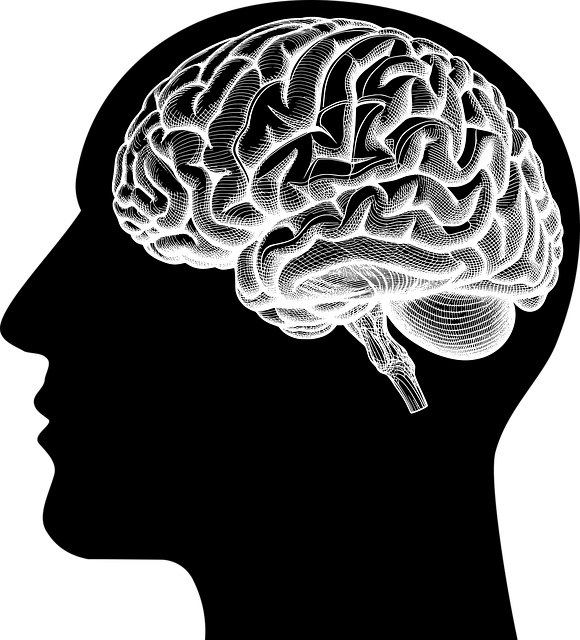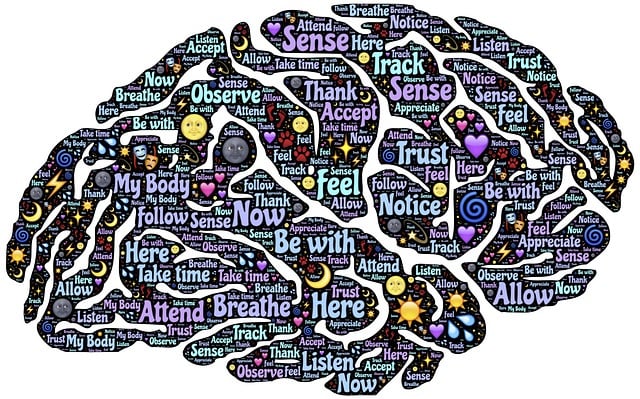Emotional Intelligence (EI) significantly impacts a child's well-being, mental health, and development. Programs like Therapy for Children, Mental Wellness Coaching, Self-Care Routine Development, and Education can foster EI, enhancing resilience and mental wellness. Parents can guide children by observing behavioral cues to recognize emotions, labeling them accurately, and teaching communication strategies. Play therapy offers a unique approach to expressing and managing emotions through imaginative play, promoting social interaction and anxiety relief. Nurturing emotional intelligence requires patience, consistency, open dialogue, and therapeutic interventions like mindfulness exercises and cognitive-behavioral strategies. Effective EI development combines open communication, age-appropriate activities, and interventions for holistic pain management in children.
Emotional intelligence (EI) is a powerful tool for children’s well-being. This article explores the impact of EI on young minds and provides practical strategies for parents and caregivers to foster healthy emotional development. We delve into identifying and managing children’s emotions, the benefits of play therapy for enhancing EI, and effective approaches to navigate their emotional journeys. By understanding and nurturing their feelings, we can empower kids with skills to manage stress, including pain management techniques, leading to happier, more resilient lives.
- Understanding Emotional Intelligence and Its Impact on Children's Well-being
- Identifying and Managing Children's Emotions: A Step-by-Step Guide for Parents and Caregivers
- The Role of Play Therapy in Enhancing Emotional Intelligence in Young Minds
- Practical Strategies to Foster Healthy Emotional Development in Children
Understanding Emotional Intelligence and Its Impact on Children's Well-being

Emotional intelligence (EI) is the ability to recognize, understand, and manage one’s own emotions, as well as recognize, interpret, and influence the emotions of others. This concept has gained significant importance in recent years, not just in adult populations but also in children. When it comes to a child’s well-being, EI plays a pivotal role in their mental health and overall development.
Children with high emotional intelligence are better equipped to handle stress, regulate their emotions, and build healthy relationships. It helps them express their feelings appropriately, empathize with others, and make sense of their surroundings. Moreover, EI can significantly impact children’s pain management, as emotionally intelligent kids often possess coping mechanisms that allow them to navigate physical and emotional discomfort more effectively. Therapy for Children, coupled with Mental Wellness Coaching Programs Development, Self-Care Routine Development for Better Mental Health, or even Mental Health Education Programs Design, can foster the growth of emotional intelligence in young individuals, ultimately contributing to their overall resilience and mental wellness.
Identifying and Managing Children's Emotions: A Step-by-Step Guide for Parents and Caregivers

Identifying and managing a child’s emotions is a crucial part of their development. Parents and caregivers play a vital role in guiding young ones to understand and express their feelings healthily. The first step is to recognize various emotional states by observing their behavior, facial expressions, and tone of voice. Once identified, it’s essential to label these emotions accurately, helping children develop their coping skills. For instance, if a child appears irritable, saying, “It seems like you’re feeling frustrated” can empower them to acknowledge and manage frustration effectively.
The next phase involves teaching communication strategies. Encourage children to verbalize their emotions by asking open-ended questions like, “How does that make you feel?” This promotes active listening and strengthens the bond between caregiver and child. Additionally, role-playing different scenarios can help them develop resilience when facing challenging situations. Through these steps, children learn to regulate their emotions, fostering better relationships and overall well-being, even when managing pain or seeking therapy for children.
The Role of Play Therapy in Enhancing Emotional Intelligence in Young Minds

Play therapy offers a unique and effective approach to enhancing emotional intelligence in young minds. Through engaging in imaginative play, children can learn to express and manage their emotions in a safe and supportive environment. This therapeutic method encourages kids to explore their feelings, understand them, and develop strategies to cope with various situations. By playing roles, creating scenarios, and using toys, children can process complex emotions, such as sadness, anger, or fear, which are essential for building emotional intelligence.
Incorporating play therapy into the lives of children can be a powerful tool in preventing burnout and promoting self-care practices at an early age. It helps them build resilience, enhances their ability to regulate emotions, and provides them with valuable skills to navigate social interactions. Moreover, play therapy can offer anxiety relief by providing a distraction from worries and allowing children to focus on the present moment during play. This early intervention through therapy can set the foundation for healthy emotional development and better mental well-being in the long term.
Practical Strategies to Foster Healthy Emotional Development in Children

Nurturing emotional intelligence in children is a multifaceted process that requires patience and consistency. One effective strategy is to encourage open dialogue about emotions, teaching them vocabulary to express their feelings. This simple act equips kids with tools to navigate their inner world. Through discussions, parents or caregivers can help children identify and understand their emotions, fostering self-awareness—a cornerstone of emotional intelligence.
Additionally, therapy for children can play a pivotal role in promoting healthy emotional development. Techniques such as mindfulness exercises and cognitive-behavioral strategies teach kids how to manage their moods and regulate emotions effectively. Self-esteem improvement activities, often incorporated into therapy sessions, help build resilience and confidence, enabling children to cope with challenges and navigate social interactions with greater ease. By combining open communication, therapeutic interventions, and age-appropriate activities, we can lay a solid foundation for emotional well-being promotion techniques in children.
Emotional intelligence is a cornerstone of healthy development, and this article has explored its profound impact on children’s well-being. By understanding and managing their emotions effectively, parents and caregivers can foster a nurturing environment that promotes resilience and emotional literacy. Play therapy emerges as a powerful tool to enhance these skills in young minds, while practical strategies provide actionable steps towards optimal emotional growth. Equipping ourselves with these tools allows us to guide children towards navigating their feelings, improving relationships, and cultivating overall mental wellness, including effective pain management.














